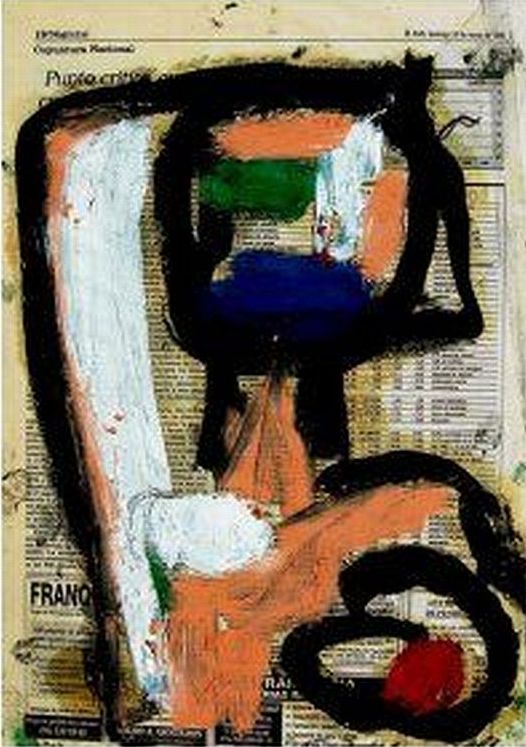The day I met one of Denmark's greatest ever chroniclers - Klaus Rifbjerg
Recently I put the finishing touches to the first draft of my translation of Den kroniske uskyld (Terminal Innocence in my English language version). Den kroniske uskyld is not only one of Danish writer Klaus Rifbjerg’s first works but also one of his finest novels. I then went to København – Copenhagen to pay homage to one of modern Europe’s greatest writers. Some readers will recall that I have already translated a short Rifbjerg essay – Arbejde – Work, which can be read here - http://www.fadooda.com/index.php?itemid=115The day I met Klaus Rifbjerg – the day I met myself coming back

He is tall still. Age hasn’t shrunk him. Only withered. Still the same proud forehead as he stands there, before a faltering step forward to greet me. A wide smile twinkles his blue eyes. His apartment is ground floor tasteful. Scandinavian design functional. For ease of movement. Bathed by sea light from big windows. Peace to think, to write, to endure, to wait for the epiphanies that come, sometimes unbidden, wait for his beloved wife Inge (Ping) who is not there, but who is everywhere like a poignant but also piquant air.

Rifbjerg paints a world of Terminal Innocence - not his world
If Kierkegaard was utter reflection, Joyce ecstatic verbal scatology, DH Lawrence a brilliant mirror to our incipient neuroses, Klaus Rifbjerg (via Montaigne) dragged us back to Socrates and the memory of what we already know but have forgotten. Dragged us he did, smashed the post modern looking glass of Narcissus presaged by Lewis Carroll. Dragged us through the pokey rabbit hole kicking and screaming and delivered us into a new world. We just haven’t remembered it or translated him enough yet. The slap of his midwife’s hand on our bared arse will come. The role of a true bard being to live amongst us and be alive in his tellings. I screamed and curled my toes when I first read Den kroniske uskyld as a 17 year old boy on a Danish ship somewhere off Africa. Because I came alive that day. Alive to myself and what I could be, what I didn’t want to be. Alive to philosophy.
A terrace looking out over the Øresund strait to Sweden. He sits in a high chair with his back to the window overlooking the sea and so I am bathed in light in the facing low sofa. All the better to see me. He will swim in the wash of my Celtic mind’s eye blue. But all I see for a moment is Hamlet staring over that same stretch from nearby Helsingør and the revelation coursing through me that Rifbjerg has written Hamlets angst of "to be or not to be" out of history. All the tomes of works, all the critics discussing him, got it wrong. This immortal scribe here before me is not a symptom of modern day angst but its cure. We are in time in a way the gods cannot be, but reach far beyond the human animal to immortality. There in the flux of his artistic creativity it rises and vanishes, only to form again. The god in the man had no choice but to strike that path. The essence of him.

The Cure in the Øresund tides.
Rifbjerg is a man’s man who dares, even more than Joyce, to also be a woman, a dandy, a fop, a paranoid agrophobe, a scourge, a depressed serial shagger, a bon vivant, a lover of inventories and timetables. Proving that we are a polyphony of one. A mystery and none.
He gives his blessing to my translation and this poem this paean is already remembered and can never be forgotten. But I know I will have to dig it out. So we spoke of udødelighed – immortality, and Rifbjerg quoting reams of Beckett. Or did I dream it? Because we barely spoke, or spoke barely. Like a Beckett play. We gazing calmly at human death and sounding the immortal word that barely needs a tongue to express it. It is so well understood. Beckett’s secret. Life’s farce and profundity. For Rifbjerg was hilarious also and cracked me up.
No bread or wine was broken but it seemed we had partaken of the five loaves and five fishes, so full was the room, the world, eternity. The tang of the whole Baltic, Kattegat and Skagerrak seas filling my pores, flaring my nose, widening my eyes. A cormorant grinning. Gliding by outside.
If I had dropped dead that second I was already in Paradise.
Our mass was ended and I went in peace under his raised hand at the door like that of a druid, a seer who had seen it all before and knew me better than I knew myself. Anointing me with the sign of his genius.
I ran to a nearby café and wrote frantically in a torrent of nonsense. But then he appeared by my side and with his weathered brown hands calmed my shoulders. His face soft before me telling me not to think but only to feel the depths of what I wanted to say ... and these words came.

Paul Larkin
Øresund coast, Copenhagen,
8th November, 2013









